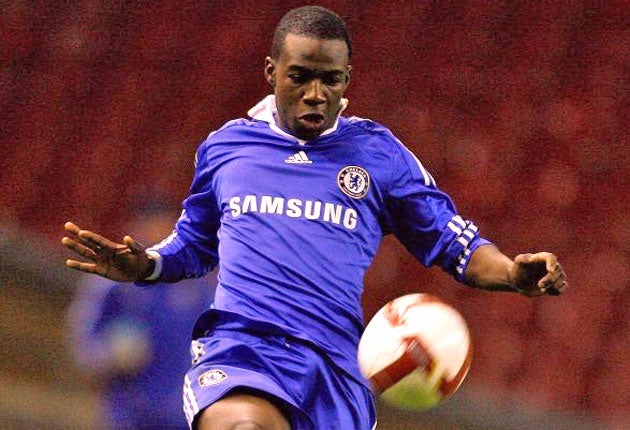Fifa's loss of face is the only certainty in Kakuta affair
Chelsea's transfer ban sent a clear warning to big clubs – until it was overturned. Now only questions remain

Your support helps us to tell the story
From reproductive rights to climate change to Big Tech, The Independent is on the ground when the story is developing. Whether it's investigating the financials of Elon Musk's pro-Trump PAC or producing our latest documentary, 'The A Word', which shines a light on the American women fighting for reproductive rights, we know how important it is to parse out the facts from the messaging.
At such a critical moment in US history, we need reporters on the ground. Your donation allows us to keep sending journalists to speak to both sides of the story.
The Independent is trusted by Americans across the entire political spectrum. And unlike many other quality news outlets, we choose not to lock Americans out of our reporting and analysis with paywalls. We believe quality journalism should be available to everyone, paid for by those who can afford it.
Your support makes all the difference.Yesterday's apparently amicable settlement between Chelsea and Lens over Gaël Kakuta is a win-win situation for all parties – apart from Fifa, perhaps – but leaves more questions that answers.
The whole deal is shrouded in confidentiality agreements but it is obvious from the statement released by the Court of Arbitration for Sport, and in comments by Chelsea's chairman, Bruce Buck, that the matter concluded after a process of arbitration, and some money changing hands.
We know Chelsea will pay Lens at least €910,000 (£793,000) because Buck said: "Chelsea has agreed to pay compensation costs for the training given to the player while at Lens, as mandated by Fifa in its original ruling."
The figures in that original ruling were €780,000 liable from Kakuta to Lens (in joint liability with Chelsea), plus €130,000 directly from Chelsea to Lens. We don't know who is picking up the case costs, but we can assume it is one or both clubs.
We know Chelsea don't accept any legal liability for any wrongdoing, because Buck told us. What we don't know is three key things. Why did Chelsea buckle and effectively "settle" if they thought they could win? Why did Lens effectively accept a compromise? And what does Fifa think about its own original verdict over a poaching allegation being found, effectively, baseless?
Make no mistake: at a meeting on 26 August last year, Fifa's dispute resolution chamber found Kakuta guilty of breaching a contract with Lens as a 15-year-old, and found Chelsea guilty of inducing that breach. Fifa handed out an additional punishment element in its ruling, banning Chelsea from two transfer windows. Chelsea appealed to the CAS over that Fifa ruling but CAS was ultimately spared a decision.
The questions remain. If Chelsea genuinely believed they were innocent, why pay about £1m to settle the case? Buck argues it was an "act of good faith and with a view to the possibility of future collaboration with Lens". Hugs all round, and kisses to both cheeks.
Could it be that Chelsea knew there was a theoretical risk of losing their appeal at the CAS, and being banned, and therefore a million quid was a quick way to make it go away? Chelsea insist not, saying they were on solid appeal grounds.
What about Lens, a club that insisted until recently that Kakuta had a contract that would stand up? They now seem less sure. Could it be that they suddenly realised their contract wasn't worth the paper it was written on? And realised they might lose at the CAS? And so took the money and ran, even though they originally wanted about five times as much?
And what about Fifa –did it get it wrong? The arbitration process means we'll never know. But it sends no deterrent message to be careful about who has a binding contract or not.
Join our commenting forum
Join thought-provoking conversations, follow other Independent readers and see their replies
Comments